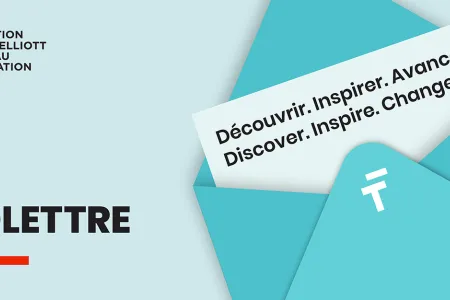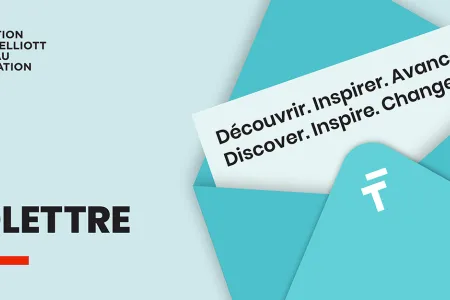Displaying results 231 - 240 of 1066

William G. Davis: A Legacy of Dialogue
On behalf of the Pierre Elliott Trudeau Foundation, our Board of Directors, and our Members, we wish to acknowledge our gratitude to the Honourable William G. Davis.

Reflections on COP26 – by Kowan O’Keefe
Last week, I had the privilege of attending COP26 in Glasgow, Scotland. Unfortunately, the pandemic made COP26 feel very different from previous COPs I have attended.

Spaces of Affect and Change: Reflections from the Editors
To talk about joy at a time of crisis, when the COVID pandemic and climate change continue to wreak havoc, may seem like an escapist or frivolous turn away from the trouble.

Our 2021 Scholars, Emerging Global Heroes on the Path to Engaged Leadership
Congratulations to the 2021 Scholars of the Pierre Elliott Trudeau Foundation who were featured in the December edition of Global Heroes Magazine!

An autumn at high speed!
Here we are already with our last newsletter for this year of great achievements. The past few months have flown by so quickly that we have barely had time to stop and share these achievements with you. Our program, events, communications, special projects, outreach, and philanthropy teams have been busy with contagious enthusiasm and creativity!

Newsletter - February 2022
The challenging year we have just come through and the pandemic that persists across the world for close to two years now have once again driven home the importance of learning how to live together and finding solutions to society’s major challenges.

Black History Month 2022
Once again this year, the Pierre Elliott Trudeau Foundation is pleased to mark such an important month honouring collective memory; an entire month to celebrate true history, all history—that of the past, that of the present, but also that which is still unwritten.

Passing on Knowledge and Supporting Tomorrow’s Leaders: Meet our Extraordinary 2022 Fellows and Mentors.
Passing on Knowledge and Supporting Tomorrow’s Leaders: Meet our Extraordinary 2022 Fellows and Mentors.


